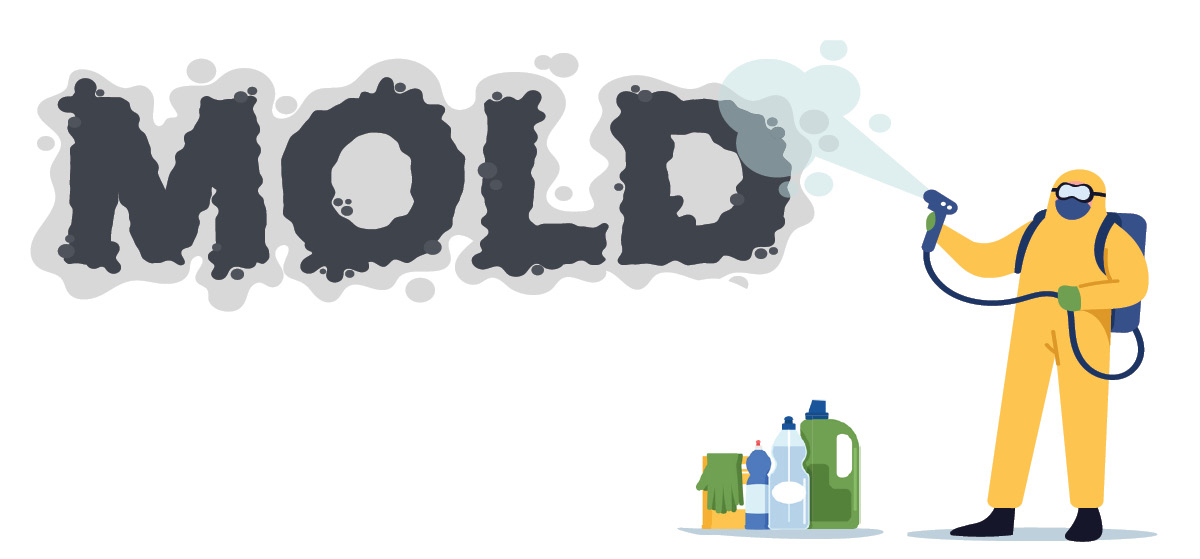4Qs: How to Deal with Mold
Emory pulmonologist Colin Swenson, an expert in lung disease and asthma, addresses how people can detect and prevent mold in their homes.

Illustration Invincible_Bulldog
How does weather factor into mold risk, such as heavy rains, flooding, water leaks, or high humidity in homes?
Mold’s effects usually aren’t felt until a few days or weeks after a weather event, says Swenson, since it takes a while for mold spores to germinate. Mold spores can blow in through open doors and windows, come in on shoes, clothes, or pets, or with floodwater. First inspect your home for standing water or wet drywall, which create prime conditions for mold growth. The best way to determine if there is mold in your home is your sense of smell. Mold gives off a musty odor, even before you’re able to see any visual signs. There are many different types of mold and not all of them cause disease.
What can be done to prevent mold in a home?
If relative humidity can be kept below 65 percent, spores will not germinate. Turning on the air conditioning, even if you don’t need it, is one way to lower humidity, as well as running dehumidifiers, especially in damp areas like basements. For mold and mildew prevention, you should set the thermostat to 72 degrees in the cooler months and 76 degrees in the warmer months, with the HVAC fan set on auto. Also, run the bathroom fan during and after showers.
What are the health risks from mold exposure?
There are potentially serious health risks, says Swenson, including hypersensitivity reactions, such as allergic bronchopulmonary aspergillosis (ABPA), a condition that can cause severe symptoms, hospitalization, and even death, especially among individuals with preexisting asthma or COPD. Another is hypersensitivity pneumonitis, an immune response that can develop from mold exposure, leading the body to attack its own lung tissue, creating progressive scarring of the lungs. Some people are at risk of “fungal balls,” which can form in areas of prior lung damage from, for instance, TB or emphysema. These fungal balls, or mycetomas, can cause major bleeding and other respiratory symptoms. Immunocompromised patients and those undergoing chemotherapy are at risk of invasive fungal disease, which is potentially fatal.
Can someone stay in their home after mold has been discovered?
If you already smell or see mold on walls, carpets, or furniture, which often shows up as a discoloration, you will have to take steps to have it cleaned up, Swenson says. He recommends contacting your insurance company, then hiring a professional mold remediation company. If you do decide to tackle a small mold infestation yourself, wear an N95 respirator, protective gloves, and goggles. Swenson recommends getting out of the home until the mold has been remediated or wearing an N95 mask inside the house.
Email the Editor







